- Home
- Marie Ferrarella
Cavanaugh or Death Page 8
Cavanaugh or Death Read online
Page 8
Could it be a shovel?
Had he come back to finish the job or to try again? Had he agreed to work with her—acting surly—so he could keep an eye on her and make sure she hadn’t stumbled across whatever it was he was doing out there?
But the gravesite he was standing at was not the one that they’d exhumed three days ago.
Just what was going on here?
Moira briefly toyed with the idea of backing into the shadows so that Gilroy wouldn’t accidentally catch sight of her. Once out of sight, she could call for backup.
What backup? she silently demanded. She wasn’t supposed to be here in the first place. Nobody in her department would respond without a good reason.
She could always call her brothers. But what if she was wrong, after all? She knew her brothers. She’d never live this down. They’d rub it in until they were all in their eighties.
No, she needed more to go on; some kind of tangible evidence. Besides, she was a police detective, she argued. She knew how to take care of herself.
Making up her mind, Moira silently crept out of the shadows. Treading softly, she approached Gilroy from behind.
“Hey—”
It was the only word she managed to get out. One second she was standing behind Davis Gilroy, about to confront the man. The next she was lying flat on her back on the ground with Gilroy right on top of her, pinning her hands over her head, shouting something unintelligible at her.
Chapter 8
“Get off me!” Moira cried, outraged, when she could finally catch her breath again.
The air had been knocked out of her partially because Gilroy had suddenly thrown her to the ground and partially because of the totally unexpected effect she was experiencing by his body pressing down so intimately against hers.
This was entirely the wrong time, wrong place and definitely the wrong person for her to be having this kind of reaction.
“Why the hell are you following me, Cavanaugh?” Davis demanded. He didn’t move a muscle. He knew if he did, he’d lose his advantage and get nothing out of her. And he wanted answers.
“Why are you here?” Moira countered.
Trying to buck the detective off her body only succeeded in underscoring the very heated connection rather than lessen it.
“I asked you first and, from what I can see, I have the advantage,” he told her as he tightened his grasp on her wrists. He was still holding on to them firmly, keeping them directly above her head.
Her eyes, narrowed into angry blue slits, shot daggers at him. “Unless you want to go through life with a permanent limp, Gilroy, I suggest you get off me right now.”
Moira shifted, managing to raise her knee just enough. To her surprise, Gilroy backed off. Whether he believed her threat or he had some residual traces of a gentleman in him, she didn’t know. In either case, Gilroy withdrew both his hold on her wrists and his weight from her body.
Then, taking her hand, he pulled her to her feet as he gained his own.
But once they were both upright, he didn’t release his hold on her hand. “Now, why were you following me?” he asked.
Moira raised her chin defiantly. “I wasn’t,” she denied.
“You snuck up behind me,” he accused.
She didn’t like explaining herself, not to someone like this who kept everything close to his vest. She liked the fact that her body was still defiantly tingling from their unexpected contact even less. It just made her angrier.
“I was staked out across the street from the cemetery, the same way I’ve been for the past three days,” she finally retorted tersely. “When I saw you pull up and then go into the cemetery, I thought maybe there was something I was overlooking—” She looked at him pointedly. “So I followed you inside.”
“Something you were overlooking,” he repeated, growing more irate with each word. “You mean like I was the grave robber?” Davis asked incredulously. His tone told her that he thought she’d lost her mind.
Her eyes were blazing. He was the one who had thrown her to the ground. He had no right to act indignant this way. “You said it, I didn’t.”
“No, you implied it,” he affirmed. “I just put it into words.” Completely taken aback by the implication, Davis shook his head. “Of all the idiotic—”
She wasn’t about to stand there and allow him to act so high-handedly when all she’d done was form a logical conclusion.
“Well, you’ve got to admit that it’s a little odd,” she pointed out, “hanging around a cemetery, in the dark, twice in one week. If you’re not guilty of hiding something, why’d you react the way you just did and throw me to the ground?” she asked.
“Because the way you snuck up behind me, I thought you were one of those two characters from the other morning,” he retorted.
Moira opened her mouth then shut it. When she opened it again, it was to grudgingly admit, “I guess that makes sense.”
“Thank you.”
There was frost attached to every single letter of the words when he uttered them. But Moira was not about to have him turn this around on her.
“That still doesn’t explain what you’re doing here—or what I saw you carry in.”
He stared at her in amazed disbelief. The expression on Gilroy’s face all but shouted, “You’ve got to be kidding me.”
“And just what did you think you saw me carry in?” he asked.
Moira would have loved to have shouted something at him, but she was forced to shrug. Looking away, she admitted in a far lower voice, “It was too dark for me to make it out.”
“So that means you didn’t see me smuggle in my miniature bulldozer?”
“What?” Too late Moira realized the detective was being sarcastic at her expense. “Okay, point taken,” she allowed begrudgingly. “But that still doesn’t answer my question about what you were doing here at this hour—twice in one week.”
His expression darkened. “Sorry, I must have missed the memo that said you were my keeper.”
Moira felt her temper begin to really fray—then told herself that in his place, she’d probably react the same way. Sometimes, she hated the fact that something within her forced her to be as fair as she was. She blamed it on her upbringing.
“How about just somebody making an interested inquiry?” she proposed.
Gilroy scowled and she braced herself for another sarcastic barb.
So she was completely caught off guard when Gilroy told her in a surprisingly subdued voice, “I was paying a visit to my parents’ grave. This time of the morning, nobody’s around. Nobody’s usually around,” he corrected, looking at her pointedly.
Moira looked at the oversize gravestone and, for the first time, read the names chiseled side by side: Martha and James Gilroy.
The dates of birth were different, but the date of the couple’s death was exactly the same. They had died together.
“You lost both of them at the same time?” Her voice was filled with equal parts sorrow and empathy, as well as contrition for having intruded on him in this way. But she had done it in complete ignorance.
“Yeah.”
Davis was a private person by definition and absolutely hated talking about himself or revealing anything of a personal nature beyond his name and his department. Yet this woman had gotten him to turn his back on his cardinal rule not once, but twice in the limited time that he’d known her.
“I’m really sorry,” she told him quietly, searching for a way to make it up to him.
“I didn’t tell you to make you feel sorry. I told you so that you’d stop looking at me as if I was public enemy number one,” Davis snapped. “Now, unless there’s something else you’d like to accuse me of, I’d like you to back off and give me some space here.”
“Oh, yes, of course.” Flustered, Mo
ira told him “I’m sorry” again as she backed away and gave him the space he’d requested.
She heard the detective grunt at her in response. Or at least it sounded like a grunt. She wasn’t about to ask him to repeat what he’d just said. She felt terrible about interrupting him as it was, maybe even over and above what she should have felt. The man was definitely not warmth personified, and yet she felt for him. Felt something for him and, for the life of her, she couldn’t really begin to explain why.
* * *
Moira couldn’t shake the feeling that had descended over her no matter how hard she tried during the course of her day at the precinct.
It seemed to hang over her like the fictional albatross, never far from her thoughts no matter what she was doing while she attempted to get a handle on the latest B and E she’d been assigned to work.
And if it did somehow manage to escape her mind for a second, it would burst back on her, ambushing her thoughts and exploding like a hidden hand grenade.
She needed to find a way to make amends and to put her conscience at some sort of peace. She knew that seeking Gilroy out and repeating her apology—yet again—was useless. She already knew how the man reacted to apologies.
What she needed was to prove to Gilroy how badly she felt about intruding on him like that. She had to get her intended message across.
After considering—and discarding—several possibilities, she settled on taking flowers to his parents’ grave. From what she’d seen, Gilroy was the only one who left flowers on their gravesite. For him to go out of his way like that showed her how much his parents must have meant to him and how much he still cared—even if he would probably rather die first before admitting the fact.
So, taking a break for lunch, something she actually did rather infrequently when she was working, Moira swung by a florist whose sign proclaimed the shop specialized in funeral arrays. Taking a few minutes to make a selection, she finally bought a tasteful arrangement of white roses in a wicker basket.
Moira placed them on the passenger seat next to her and drove directly to the cemetery.
It was the middle of the day and, unlike the last time she’d been here, there were a few people scattered around on the grounds.
She heard several people talking, but rather than listen to any random conversation, as was sometimes her habit, Moira made her way to the area of the cemetery where Gilroy’s parents were buried.
In the light of day, it took a little doing on her part.
The cemetery had looked different in the predawn light than it did now in full daylight, but after a few wrong turns, she finally managed to find the gravesite she was looking for. As far as headstones went, the rectangular white marble was subdued yet impressive in its purity of lines and in its simplicity.
“Sorry about this morning,” she murmured to the couple whose earthly remains were buried beneath the headstone. “I didn’t mean to intrude on your time together with your son. If he’d told me what he was doing here, I wouldn’t have followed him in, or hovered over him in the first place.” She suppressed a sigh. “Your son’s a little difficult to get any information out of, but then, you probably already know that,” she said, placing the basket next to the bouquet Gilroy had left earlier. “It’s not much,” she admitted, “but this is just my small way of apologizing.”
Taking a couple of steps back, Moira stood and regarded the dual grave for a long moment, wondering how she would have felt if both of her parents had been taken from her at the same time.
She’d lost her mother at an early age, which had left her feeling bereft for a long time—but she’d had a whole family that had served as one another’s support system. If she’d had to face that kind of grief alone, she didn’t know how she would have been able to withstand the pain and trauma.
Moira caught herself feeling sorry for the taciturn detective and wishing there was some way she could make amends—not that he would allow it, she thought the next moment.
At any rate, she had to get back. She had an interview set up with a possible witness to the robbery of the “ancient TV”—as she referred to her present case in her mind—and she had less than an hour to get there.
Attempting to retrace her steps, Moira found that she had somehow taken a wrong turn and was now wandering in a completely unfamiliar-looking section of the cemetery.
Her total lack of a sense of direction almost seemed to taunt her. She should have brought bread crumbs, Moira upbraided herself in absolute frustration.
Looking around, she tried to find someone to point out which path she needed to take to get out of the cemetery. Otherwise, she had a feeling she might wind up wandering around aimlessly for hours—if not more.
All the people she had either seen or heard as she’d made her way to Gilroy’s parents’ gravesite seemed to be nowhere in sight.
She had no choice but to try to find her own way.
Turning down yet another unfamiliar path, one that was very apparently in the older section of the cemetery, Moira suddenly stopped looking for the way out and stared at the grave she had stumbled across.
The ground beneath the headstone appeared disturbed, just like the one from several days ago.
And, just like the one from several days ago, the date on the headstone told her that the person beneath it had been buried twenty years ago.
It was a hell of a coincidence—and her father had taught her not to believe in coincidences.
Taking out her cell, she did what she’d done at the other gravesite. She took pictures.
Stepping around the site, she kept snapping, turning the pieces into one large panoramic shot, just as she had done before. She kept her eyes strictly on the ground in front of her, concentrating on leaving no portion out.
That was why she didn’t see it until she stumbled upon it.
More specifically, until she’d stumbled on the handle sticking out from beneath a juniper bush planted there by someone from either the deceased’s family or friends.
She put her cell phone away for the moment and turned to investigate just what she’d tripped over. She took out her handkerchief and gripped the handle, pulling it out from beneath the bush.
The handle was attached to a blade.
Apparently whoever had disturbed the grave had used the shovel to do it and then forgotten to take it after they’d gotten what they were after—or maybe buried?
Moira still had no satisfactory answer when it came to that. But she would, she promised herself.
She would.
Finished commemorating the disturbed gravesite with her camera, Moira took a photograph of the shovel, making sure that she also got the juniper bush into the shot, as well.
“Okay, now what?” she murmured to herself. How was she going to get anyone to let her exhume this body?
She had to admit that this had all the earmarks of the old fable about the boy who had cried wolf. Even with all these new photographs she’d taken, she had an uneasy feeling she would never get Lieutenant Carver to agree to let her do yet another investigation here at the cemetery.
She supposed that she could talk to the groundskeeper again. The man had been uncooperative and unfriendly the first time around, but maybe pointing out this second disturbed gravesite might bring him around to her side. If so, she could get him to report the crime. Once the complaint was filed, Carver would have to allow her to look into it.
But what if the groundskeeper was the one disturbing the graves for some reason of his own? Or at least involved in what was going on? Alerting Weaver would really work against her in that case.
“First things first, Moi,” she told herself. “You’ve got to find your way out of this maze of tombstones and dead people.”
The only question that remained, she thought as she looked around what appeared to be an endles
s sea of headstones, was how.
Chapter 9
In the end, because time was important, Moira was forced to call her youngest sister, Valri, for help.
In addition to being a virtual wizard when it came to computers and getting them to cough up embedded data as well as being one of the Aurora police force’s most recently minted detectives, Valri Cavanaugh was the living, breathing embodiment of a GPS system. Moira firmly believed that her little sister could undoubtedly guide a small fleet of fog-enshrouded crafts safely to shore with one hand tied behind her back.
And Valri, unlike their brothers, would not hold Moira’s lack of a sense of direction against her or tease her incessantly about it for the next three decades—if not longer.
The hard part was getting Valri’s attention. Her sister had a tendency to become completely immersed in her work to the exclusion of everything else.
It took ten minutes for Valri to finally respond to her text.
Once she did, Moira asked her to ping her cell phone, lock in on it and then give her directions on how to get to the cemetery’s east entrance. She’d parked her car there.
Five minutes later, Moira was behind the wheel of her vehicle, heading back to the precinct.
Relieved to finally be out of the cemetery—she was beginning to feel like a hapless rat in a maze—Moira braced herself for her next challenge. She began to mentally gear herself up for a second go-round with her less-than-approachable lieutenant, rehearsing in her mind what she would say to him.
* * *
She never got a chance to use any of the arguments she’d prepared. The moment she broached the subject to Carver, he shut her down.
“I thought you Cavanaughs were supposed to be smart,” Carver said sarcastically. “What part of ‘no’ don’t you understand?”
“But, sir, it can’t be a coincidence that I found a second grave that’s been tampered with.”
The lieutenant glared at her. “I’m not authorizing any more time for this wild-goose chase just because the guy who’s supposed to be taking care of the graves there is falling down on the job.”

 Colton Baby Conspiracy (The Coltons 0f Mustang Valley Book 1)
Colton Baby Conspiracy (The Coltons 0f Mustang Valley Book 1)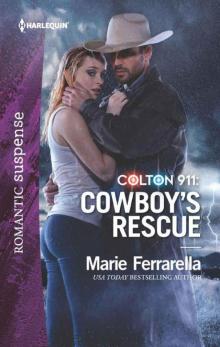 Cowboy's Rescue (Colton 911 Book 1)
Cowboy's Rescue (Colton 911 Book 1) Bridesmaid For Hire (Matchmaking Mamas Book 23)
Bridesmaid For Hire (Matchmaking Mamas Book 23) Secrets of Forever
Secrets of Forever Fortune's Greatest Risk (The Fortunes 0f Texas: Rambling Rose Book 4)
Fortune's Greatest Risk (The Fortunes 0f Texas: Rambling Rose Book 4) Cavanaugh Cowboy
Cavanaugh Cowboy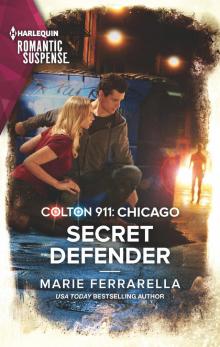 Colton 911: Secret Defender
Colton 911: Secret Defender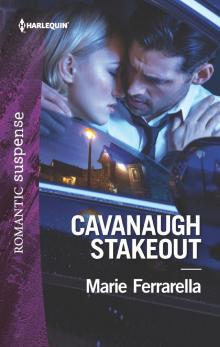 Cavanaugh Stakeout
Cavanaugh Stakeout The Late Bloomer's Road to Love
The Late Bloomer's Road to Love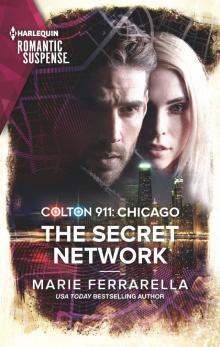 Colton 911--The Secret Network
Colton 911--The Secret Network An Unexpected Father
An Unexpected Father The Lawman's Romance Lesson (Forever, Tx. Series Book 20)
The Lawman's Romance Lesson (Forever, Tx. Series Book 20) Coming to a Crossroads
Coming to a Crossroads Colton 911: Cowboy's Rescue
Colton 911: Cowboy's Rescue Summer of Love
Summer of Love Cavanaugh Stakeout (Cavanaugh Justice Book 41)
Cavanaugh Stakeout (Cavanaugh Justice Book 41) Texan Seeks Fortune
Texan Seeks Fortune M.D. Most Wanted
M.D. Most Wanted Cavanaugh In Plain Sight (Cavanaugh Justice Book 42)
Cavanaugh In Plain Sight (Cavanaugh Justice Book 42) The Law and Ginny Marlow
The Law and Ginny Marlow Bridesmaid for Hire
Bridesmaid for Hire A Match for the Doctor
A Match for the Doctor The Sheriff’s Christmas Surprise
The Sheriff’s Christmas Surprise Colton's Secret Service
Colton's Secret Service A WEDDING FOR CHRISTMAS
A WEDDING FOR CHRISTMAS A Cavanaugh Christmas
A Cavanaugh Christmas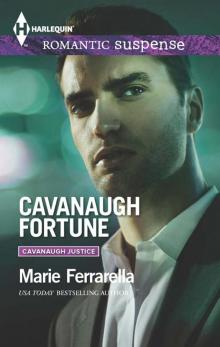 Cavanaugh Fortune
Cavanaugh Fortune The 39-Year-Old Virgin
The 39-Year-Old Virgin Coming To A Crossroads (Matchmaking Mamas Book 24)
Coming To A Crossroads (Matchmaking Mamas Book 24)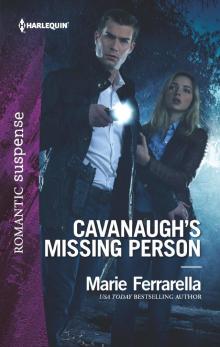 Cavanaugh's Missing Person
Cavanaugh's Missing Person Cavanaugh on Call
Cavanaugh on Call The M.D.'s Surprise Family
The M.D.'s Surprise Family Angus's Lost Lady
Angus's Lost Lady Her Red-Carpet Romance
Her Red-Carpet Romance Choices (A Woman's Life)
Choices (A Woman's Life) Prescription for Romance
Prescription for Romance A Perfectly Imperfect Match (Matchmaking Mamas)
A Perfectly Imperfect Match (Matchmaking Mamas)![[Kate's Boys 04] - Travis's Appeal Read online](http://i1.bookreadfree.com/i/03/21/kates_boys_04_-_traviss_appeal_preview.jpg) [Kate's Boys 04] - Travis's Appeal
[Kate's Boys 04] - Travis's Appeal Secret Agent Affair
Secret Agent Affair The Cowboy's Lesson in Love
The Cowboy's Lesson in Love Colton Copycat Killer
Colton Copycat Killer A Small Fortune
A Small Fortune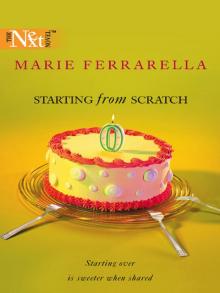 Starting from Scratch
Starting from Scratch Her Forever Cowboy
Her Forever Cowboy Colton Showdown
Colton Showdown Crime and Passion
Crime and Passion The Heart of a Ruler
The Heart of a Ruler This Heart for Hire
This Heart for Hire A Forever Kind of Hero
A Forever Kind of Hero Special Agent's Perfect Cover
Special Agent's Perfect Cover The Baby Beneath the Mistletoe
The Baby Beneath the Mistletoe A Maverick and a Half
A Maverick and a Half The Doctor's Guardian
The Doctor's Guardian Cavanaugh Undercover
Cavanaugh Undercover Hero for Hire
Hero for Hire Fortune's Heirs: Reunion
Fortune's Heirs: Reunion How to Seduce a Cavanaugh
How to Seduce a Cavanaugh The Heiress’s 2-Week Affair
The Heiress’s 2-Week Affair Twice a Hero, Always Her Man
Twice a Hero, Always Her Man My Spy
My Spy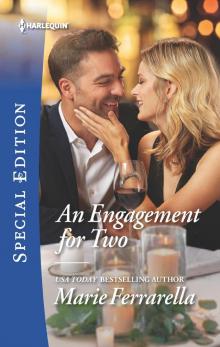 An Engagement for Two
An Engagement for Two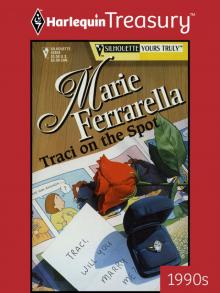 Traci On The Spot
Traci On The Spot Carrying His Secret
Carrying His Secret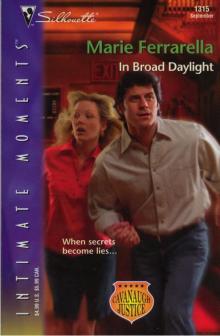 In Broad Daylight
In Broad Daylight Cavanaugh Cold Case
Cavanaugh Cold Case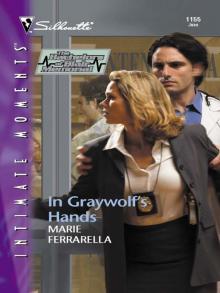 In Graywolf’s Hands
In Graywolf’s Hands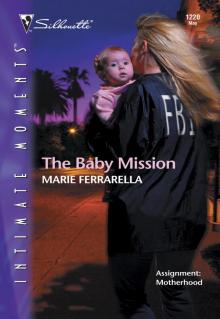 The Baby Mission
The Baby Mission Real Vintage Maverick
Real Vintage Maverick Twins on the Doorstep
Twins on the Doorstep Cowboys Are For Loving
Cowboys Are For Loving Heart of a Hero
Heart of a Hero The Cowboy's Christmas Surprise
The Cowboy's Christmas Surprise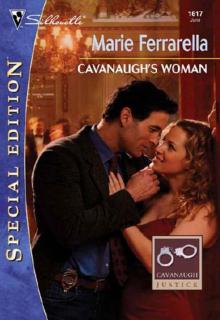 Cavanaugh’s Woman
Cavanaugh’s Woman Sundays Are for Murder
Sundays Are for Murder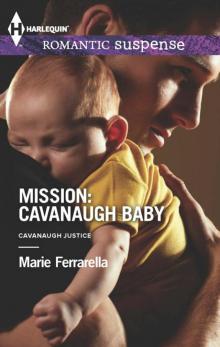 Mission: Cavanaugh Baby
Mission: Cavanaugh Baby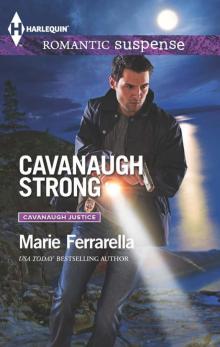 Cavanaugh Strong
Cavanaugh Strong Wish Upon a Matchmaker
Wish Upon a Matchmaker Dangerous Games
Dangerous Games What the Single Dad Wants...
What the Single Dad Wants... Rough Around the Edges
Rough Around the Edges Cavanaugh Judgment
Cavanaugh Judgment Cavanaugh Watch
Cavanaugh Watch Cavanaugh's Secret Delivery
Cavanaugh's Secret Delivery The Pregnant Colton Bride
The Pregnant Colton Bride Let's Get Mommy Married
Let's Get Mommy Married Searching for Cate
Searching for Cate A Forever Christmas
A Forever Christmas Dangerous Disguise
Dangerous Disguise Mac’s Bedside Manner
Mac’s Bedside Manner Cavanaugh Pride
Cavanaugh Pride The Fortune Most Likely To...
The Fortune Most Likely To...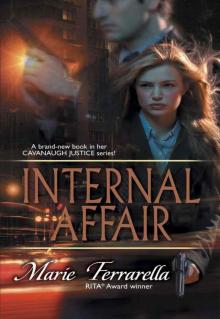 Internal Affair
Internal Affair A Second Chance for the Single Dad
A Second Chance for the Single Dad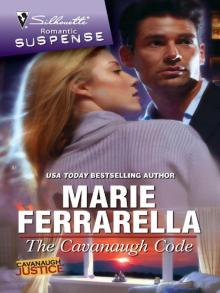 The Cavanaugh Code
The Cavanaugh Code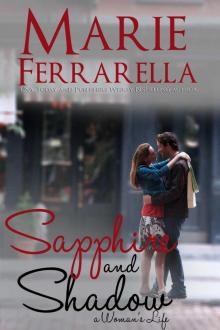 Sapphire and Shadow (A Woman's Life)
Sapphire and Shadow (A Woman's Life)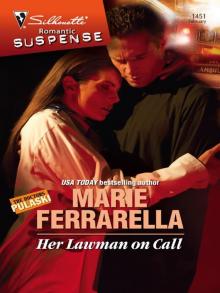 Her Lawman on Call
Her Lawman on Call A Dad At Last
A Dad At Last Her Right-Hand Cowboy (Forever, Tx Series Book 21)
Her Right-Hand Cowboy (Forever, Tx Series Book 21) Cavanaugh Heat
Cavanaugh Heat![[Ladera by the Sea 01] - A Wedding for Christmas Read online](http://i1.bookreadfree.com/i1/03/27/ladera_by_the_sea_01_-_a_wedding_for_christmas_preview.jpg) [Ladera by the Sea 01] - A Wedding for Christmas
[Ladera by the Sea 01] - A Wedding for Christmas Lassoing the Deputy
Lassoing the Deputy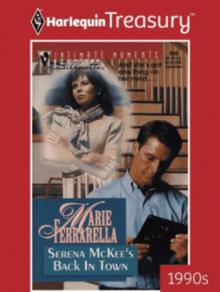 Serena Mckee's Back In Town
Serena Mckee's Back In Town A Baby on the Ranch: A Baby on the RanchRamona and the Renegade
A Baby on the Ranch: A Baby on the RanchRamona and the Renegade One Plus One Makes Marriage
One Plus One Makes Marriage Protecting His Witness
Protecting His Witness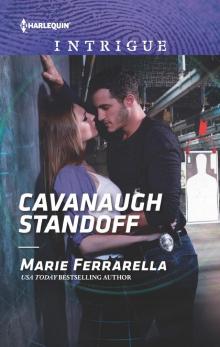 Cavanaugh Standoff
Cavanaugh Standoff The Baby Came C.O.D.
The Baby Came C.O.D. The Setup
The Setup Texas Rose
Texas Rose Three Marie Ferrarella Romances Box Set One
Three Marie Ferrarella Romances Box Set One The Lawman's Romance Lesson
The Lawman's Romance Lesson Desperately Seeking Twin...
Desperately Seeking Twin...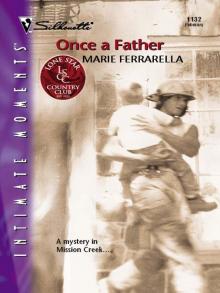 Once a Father
Once a Father![[The Sons of Lily Moreau 02] - Taming the Playboy Read online](http://i1.bookreadfree.com/i/03/25/the_sons_of_lily_moreau_02_-_taming_the_playboy_preview.jpg) [The Sons of Lily Moreau 02] - Taming the Playboy
[The Sons of Lily Moreau 02] - Taming the Playboy Lily and the Lawman
Lily and the Lawman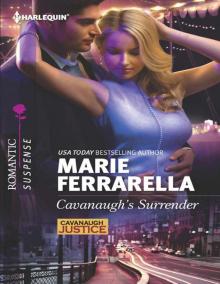 Cavanaugh's Surrender
Cavanaugh's Surrender The Cowboy and the Lady
The Cowboy and the Lady Innkeeper's Daughter
Innkeeper's Daughter A Bachelor and a Baby
A Bachelor and a Baby![[The Sons of Lily Moreau 03] - Capturing the Millionaire Read online](http://i1.bookreadfree.com/i1/03/31/the_sons_of_lily_moreau_03_-_capturing_the_millionaire_preview.jpg) [The Sons of Lily Moreau 03] - Capturing the Millionaire
[The Sons of Lily Moreau 03] - Capturing the Millionaire Because a Husband Is Forever
Because a Husband Is Forever Diamond in the Rough
Diamond in the Rough The Doctor's Forever Family
The Doctor's Forever Family A Lawman for Christmas
A Lawman for Christmas Cavanaugh Rules: Cavanaugh RulesCavanaugh Reunion
Cavanaugh Rules: Cavanaugh RulesCavanaugh Reunion Baby Times Two
Baby Times Two![[The Sons of Lily Moreau 01] - Remodeling the Bachelor Read online](http://i1.bookreadfree.com/i1/04/02/the_sons_of_lily_moreau_01_-_remodeling_the_bachelor_preview.jpg) [The Sons of Lily Moreau 01] - Remodeling the Bachelor
[The Sons of Lily Moreau 01] - Remodeling the Bachelor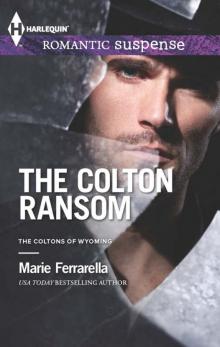 The Colton Ransom
The Colton Ransom Mendoza's Secret Fortune
Mendoza's Secret Fortune Hero in the Nick of Time
Hero in the Nick of Time![[Kate's Boys 03] - Mistletoe and Miracles Read online](http://i1.bookreadfree.com/i1/04/02/kates_boys_03_-_mistletoe_and_miracles_preview.jpg) [Kate's Boys 03] - Mistletoe and Miracles
[Kate's Boys 03] - Mistletoe and Miracles The Man Who Would Be Daddy
The Man Who Would Be Daddy Fortune's Second-Chance Cowboy
Fortune's Second-Chance Cowboy Coming Home for Christmas
Coming Home for Christmas Her Special Charm
Her Special Charm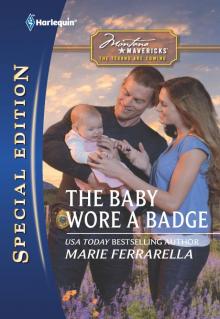 The Baby Wore a Badge
The Baby Wore a Badge Perfect Wyoming Complete Collection: Special Agent's Perfect Cover ; Rancher's Perfect Baby Rescue ; A Daughter's Perfect Secret ; Lawman's Perfect Surrender ; The Perfect Outsider ; Mercenary's Perfect Mission
Perfect Wyoming Complete Collection: Special Agent's Perfect Cover ; Rancher's Perfect Baby Rescue ; A Daughter's Perfect Secret ; Lawman's Perfect Surrender ; The Perfect Outsider ; Mercenary's Perfect Mission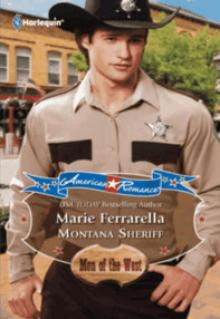 Montana Sheriff
Montana Sheriff Fiona And The Sexy Stranger
Fiona And The Sexy Stranger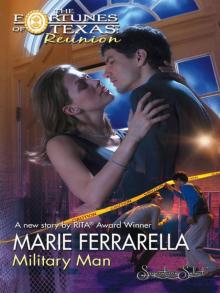 Military Man
Military Man Dating for Two (Matchmaking Mamas)
Dating for Two (Matchmaking Mamas) Cavanaugh Encounter
Cavanaugh Encounter In His Protective Custody
In His Protective Custody A Small Town Thanksgiving
A Small Town Thanksgiving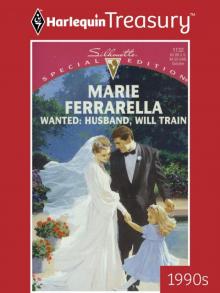 Wanted: Husband, Will Train
Wanted: Husband, Will Train Suddenly...Marriage!
Suddenly...Marriage! Plain Jane and the Playboy
Plain Jane and the Playboy Private Justice
Private Justice The Strong Silent Type
The Strong Silent Type Christmas Cowboy Duet
Christmas Cowboy Duet Flash and Fire
Flash and Fire Colton by Marriage
Colton by Marriage Fortune's Valentine Bride
Fortune's Valentine Bride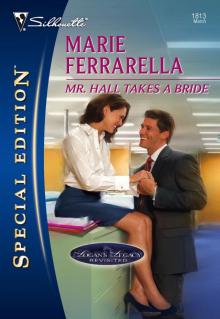 Mr. Hall Takes a Bride
Mr. Hall Takes a Bride Her Good Fortune
Her Good Fortune The Disenchanted Duke
The Disenchanted Duke Beauty and the Baby
Beauty and the Baby Cavanaugh Vanguard
Cavanaugh Vanguard In Bed with the Badge
In Bed with the Badge My Phony Valentine
My Phony Valentine The Rancher and the Baby
The Rancher and the Baby Immovable Objects
Immovable Objects Cavanaugh Reunion
Cavanaugh Reunion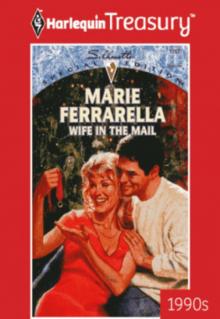 Wife in the Mail
Wife in the Mail A Hero in Her Eyes
A Hero in Her Eyes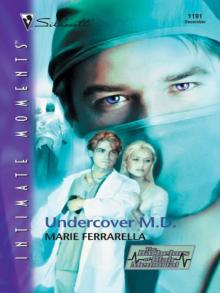 Undercover M.D.
Undercover M.D.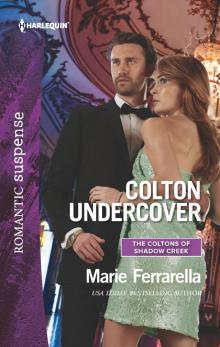 Colton Undercover
Colton Undercover Found: His Perfect Wife
Found: His Perfect Wife Dr. Forget-Me-Not (Matchmaking Mamas)
Dr. Forget-Me-Not (Matchmaking Mamas) Loving the Right Brother
Loving the Right Brother Holiday in a Stetson: The Sheriff Who Found ChristmasA Rancho Diablo Christmas
Holiday in a Stetson: The Sheriff Who Found ChristmasA Rancho Diablo Christmas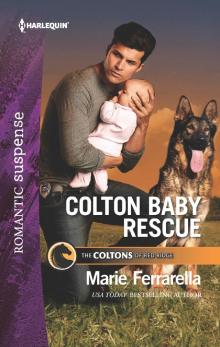 Colton Baby Rescue
Colton Baby Rescue Baby's First Christmas
Baby's First Christmas LASSOED BY FORTUNE
LASSOED BY FORTUNE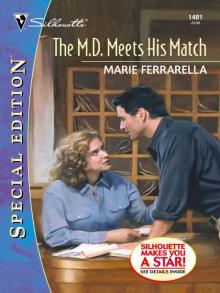 The M.D. Meets His Match
The M.D. Meets His Match A Baby for Christmas
A Baby for Christmas His Forever Valentine
His Forever Valentine The Inheritance
The Inheritance The Woman Who Wasn't There
The Woman Who Wasn't There![[Kate's Boys 05] - A Lawman for Christmas Read online](http://i1.bookreadfree.com/i2/04/09/kates_boys_05_-_a_lawman_for_christmas_preview.jpg) [Kate's Boys 05] - A Lawman for Christmas
[Kate's Boys 05] - A Lawman for Christmas Husbands and Other Strangers
Husbands and Other Strangers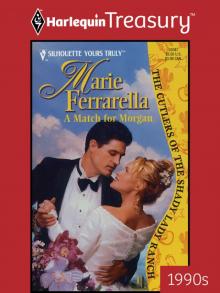 A Match for Morgan
A Match for Morgan The Doctor's Guardian & Tempted By His Target
The Doctor's Guardian & Tempted By His Target The Offer She Couldn't Refuse
The Offer She Couldn't Refuse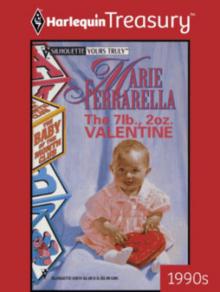 The 7 Lb., 2 Oz. Valentine
The 7 Lb., 2 Oz. Valentine Fixed Up with Mr. Right?
Fixed Up with Mr. Right? Husband: Some Assembly Required
Husband: Some Assembly Required Adding Up to Family
Adding Up to Family Cavanaugh or Death
Cavanaugh or Death Unwrapping the Playboy
Unwrapping the Playboy Becoming a Cavanaugh
Becoming a Cavanaugh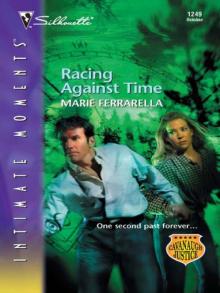 Racing Against Time
Racing Against Time Christmastime Courtship
Christmastime Courtship A Billionaire and a Baby
A Billionaire and a Baby Ten Years Later...
Ten Years Later...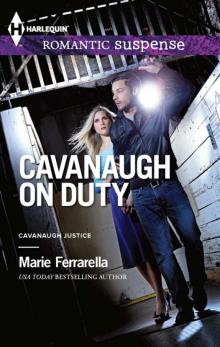 Cavanaugh on Duty
Cavanaugh on Duty Cavanaugh Hero
Cavanaugh Hero Finding Happily-Ever-After
Finding Happily-Ever-After The Prodigal M.D. Returns
The Prodigal M.D. Returns Mendoza's Secret Fortune (The Fortunes of Texas: Cowboy Country)
Mendoza's Secret Fortune (The Fortunes of Texas: Cowboy Country) Once Upon a Matchmaker
Once Upon a Matchmaker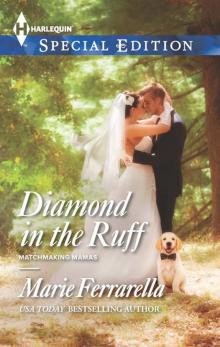 Diamond in the Ruff (Matchmaking Mamas Book 13)
Diamond in the Ruff (Matchmaking Mamas Book 13) Fortune's Just Desserts
Fortune's Just Desserts![[Kate's Boys 02] - The Bride With No Name Read online](http://i1.bookreadfree.com/i2/04/10/kates_boys_02_-_the_bride_with_no_name_preview.jpg) [Kate's Boys 02] - The Bride With No Name
[Kate's Boys 02] - The Bride With No Name The Agent's Secret Baby
The Agent's Secret Baby Doctoring the Single Dad
Doctoring the Single Dad Stand-In Mom
Stand-In Mom Diamonds and Deceptions
Diamonds and Deceptions The Bride Wore Blue Jeans
The Bride Wore Blue Jeans The Amnesiac Bride
The Amnesiac Bride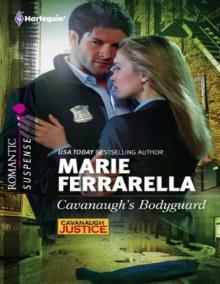 Cavanaugh's Bodyguard
Cavanaugh's Bodyguard Brooding Angel
Brooding Angel The Once and Future Father
The Once and Future Father Cavanaugh in the Rough
Cavanaugh in the Rough Mother in Training
Mother in Training She’s Having a Baby
She’s Having a Baby Never Too Late For Love
Never Too Late For Love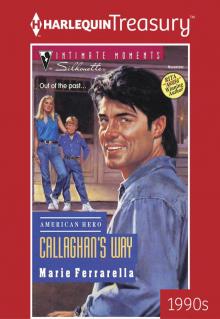 Callaghan's Way
Callaghan's Way Happy New Year--Baby!
Happy New Year--Baby!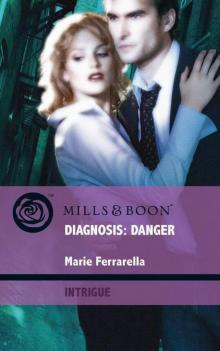 Diagnosis: Danger
Diagnosis: Danger Your Baby Or Mine?
Your Baby Or Mine? The Maverick's Return
The Maverick's Return Do You Take This Child?
Do You Take This Child? The Women in Joe Sullivan's Life
The Women in Joe Sullivan's Life The Second Time Around
The Second Time Around A Hero for All Seasons
A Hero for All Seasons